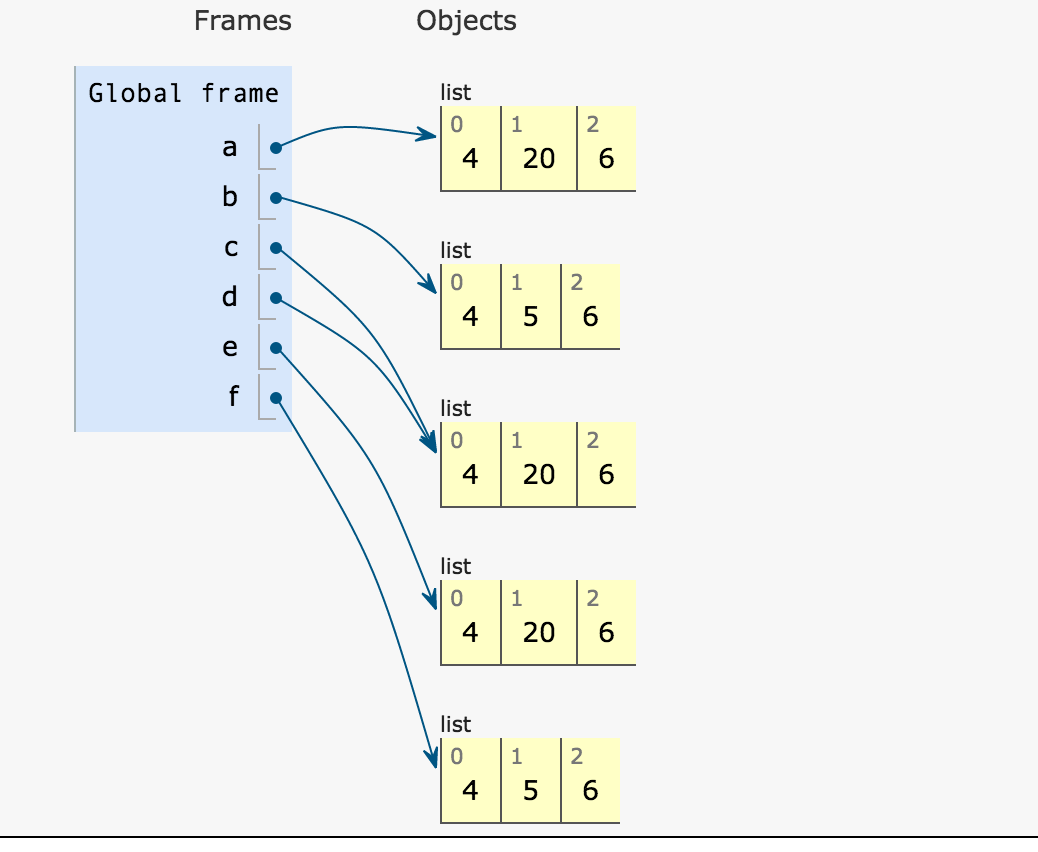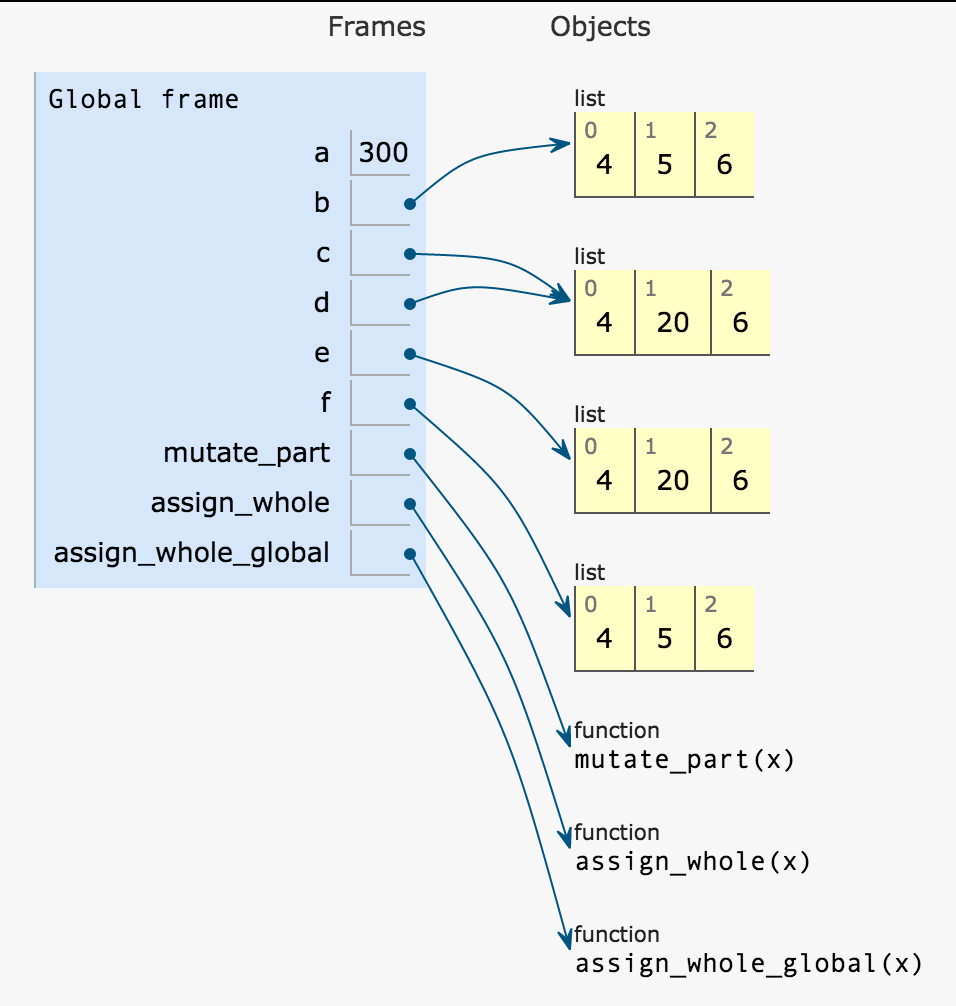Someting about Lists mutation

################################### # Mutation vs. assignment ################ # Look alike, but different a = [4, 5, 6] b = [4, 5, 6] print "Original a and b:", a, b print "Are they same thing?", a is b a[1] = 20 print "New a and b:", a, b print ################ # Aliased c = [4, 5, 6] d = c print "Original c and d:", c, d print "Are they same thing?", c is d c[1] = 20 print "New c and d:", c, d print ################ # Copied e = [4, 5, 6] f = list(e) print "Original e and f:", e, f print "Are they same thing?", e is f e[1] = 20 print "New e and f:", e, f print ################################### # Interaction with globals a = [4, 5, 6] def mutate_part(x): #注:这里的a默认为global a[1] = x def assign_whole(x): a = x def assign_whole_global(x): global a a = x mutate_part(100) print a assign_whole(200) print a assign_whole_global(300) print a
这里的赋值需要注意:
b = a ,则a, b指向同一块内存,对a[1]或者b[1]赋值, 都可以改变这个list;
b = list(a), 则a, b指向不同的内存。

又如:
x = range(5)
y = x
y = [0, 1, 10, 3, 4]
这时,y又会被分配一块内存。x, y不指向同一块内容了。
global vs local
mutate_part(x)这个函数对a[1]进行了更改,这里a被默认为global;
assign_whole(x)中a则是local。
assign_whole_global(x)中想对全局变量进行更改,所以加上global关键字

a = range(5) def mutate1(b): b[3] = 100 print b #[0, 1, 2, 100, 4] mutate1(a) print a[3]# 100 a = range(5) def mutate1(a): b[3] = 100 #NameError: name 'b' is not defined print b mutate1(a) print a[3] a = range(5) def mutate1(b): a[3] = 100 print b #[0, 1, 2, 100, 4], 这里b是a的副本 mutate1(a) print a[3]# 100 a = range(5) def mutate1(a): a[3] = 100 print a #[0, 1, 2, 100, 4] mutate1(a) print a[3]# 100
其实,只要mutate()传递的是a这个global,则函数中对a[]做的赋值操作,均是对全局global的操作。
lists & tuples(多元组)
difference: lists are mutable; tuples are immutable, strings are the same as tuples, immutable.

list的‘‘+’’, 可不是向量的对应项相加的意思哦!

